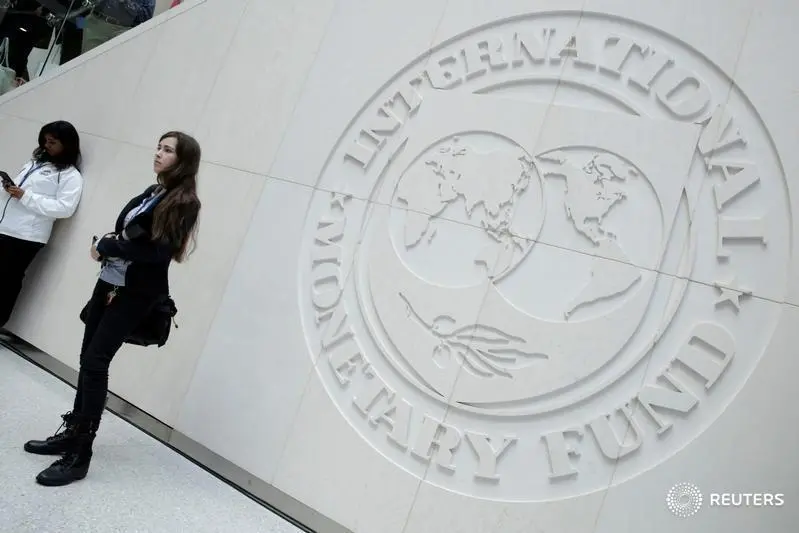PHOTO
A Lagos-based investment banker and financial advisory firm, Afrinvest (West) Africa Limited, has said that though the International Monetary Fund’s (IMF’s) position that Nigeria should sustain monetary policy tightening to rein in inflation is theoretically grounded, that may not be the case in practical terms because financing condition in the Nigerian economy is still loose such that “the artificial misalignment of market rates is counter-intuitive to disinflation efforts.”
The IMF 2022 Article IV Consultation report on Nigeria was released last week with recommendations that included bold fiscal reforms to create the required policy environment to put public debt on sound footing.
Reforms such as removal of fuel subsidies by mid-2023, tax administration reforms, and modernising customs administration were also recommended.
Other suggestions to the Nigerian government include decisive and effective monetary policy tightening to avoid de-anchoring of inflation expectations.
Related NewsFGC-Alumni demonstrate support for Niger-APC guber candidate, Hon. Umaru BagoCustomers berate banks’ weak IT infrastructures as naira scarcity persistsCash redesign policy: Nigeria runs risk of CBN-induced recession – Governors tell Buhari
In addition, the Bretton Woods Institution advised the authorities to finalise securitisation of the existing Ways & Means liabilities and emphasised that the CBN’s deficit financing should strictly adhere to the statutory limits; a continued move towards a unified and market-clearing exchange rate to boost investor confidence, subdue capital outflow pressures, and rebuild buffers; increased vigilance given potential risks associated with dynamic retail credit growth (e.g aggressive intervention funding); ensure improvement of the performance of the agricultural sector for job creation and food security.
Also, that improving transparency and accountability in the oil sector is also key to strengthening governance.
According to Afrinvest, though these recommendations align with its thoughts and could guide the next administration, “we believe that a phased implementation would be pragmatic given the fragile economic condition.
“In our holistic view, bold fiscal reforms such as subsidy removal and tax administration reforms are of great essence to the success of the next administration.
“Specifically, subsidy removal should even be more urgent (not later than zero to three months of the new government) than recommended by the IMF to salvage Nigeria’s precarious fiscal position which prompted Moody’s recent credit rating downgrade,” stated Afrinvest.
In its Article IV, the Bretton Woods institution assessed the dynamics of the Nigerian economic landscape, identified the risks and recommended some mitigating approaches.
The report highlighted how Nigeria’s economy has recovered the output shortfalls sustained during the pandemic-induced recession of 2020 supported by favourable oil prices and buoyant consumption activities.
Recall that the Nigerian economy expanded in real term for the eight consecutive quarters in Q3:2022 by 2.3 percent year-on-year (y/y).
Also, the article pointed out how the headline inflation softened for the first time in 11 months to 21.3 percent in December 2022, though still afar off CBN’s single digit target.
Despite rising oil prices, Nigeria’s fiscal deficit is estimated to have widened further in 2022, thereby missing the opportunity to reap the benefits of higher global oil prices primarily due to high fuel subsidy costs and depressed crude oil output in the year.
Although the IMF estimated an improvement in current account position in 2022, Nigeria’s foreign reserves declined by 8.2 percent y/y to $36.9 billion reflecting faster drawdown than accretion rate.
No doubt, elevated food and fertiliser prices, fuel scarcity, and continued widening of the parallel market premium could climax in the de-anchoring of inflation expectations.
However, the IMF emphasised that short-term downside risks could emanate from elevated inflation, high debt-servicing costs, external sector pressures and bottlenecks in the oil sector.
Similar to Afrinvest’s position, the IMF recommended decisive fiscal and monetary tightening to ensure macroeconomic stability and structural reforms to improve governance, strengthen the agricultural sector, salvage the oil sector and boost economic growth.
Copyright © 2022 Nigerian Tribune Provided by SyndiGate Media Inc. (Syndigate.info).




















